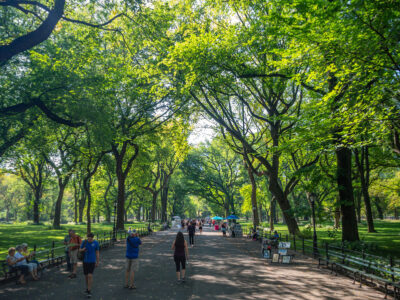
Researchers at the University of Exeter’s medical school recently published a study which found that lining urban streets with trees can effectively reduce the occurrence of asthma attacks in surrounding areas. This is because trees absorb toxic airborne pollutants, thereby preventing them from having an effect on people with asthma.
According to the study’s findings, planting 300 trees per square kilometer could result in about 50 fewer asthma attacks for every 100,000 people over the course of about 15 years. The study suggests that planting trees is one way cities can help people with asthma live healthier, more productive lives.
The study also notes that planting too many trees can be problematic for people with asthma as well. That’s because the pollen from those trees can mix with pollutants and cause a condition called gray fever. But as long as cities are careful to plant an appropriate number of trees in the right areas, they can have a measurably positive effect on the local air quality.
Here in Michigan, Detroit recently launched an ambitious plan to plant 10,000 new trees in the city over the next three years. This could not only benefit the city’s appearance, but also improve the local air quality for its residents. It’s an exciting trend that we hope more cities will embrace in the future.

